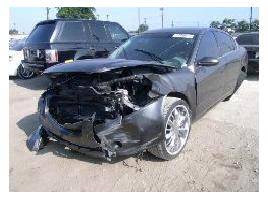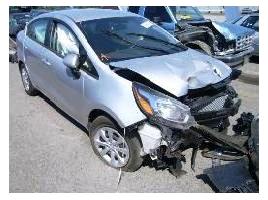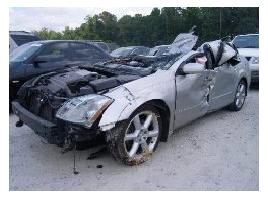Ask an Attorney a Question for FREE!
What to do when the police get to the accident scene?
Keep calm and provide whatever information the police ask of you. Be careful with what you say!

What happens when the police get to the accident scene?
Shortly after officers get to the accident scene, they will make sure no one is hurt. They will then ask if the parties are not by themselves (if they have company or not).
Some officers will send everyone to their vehicle. Some will take statements on the sidewalk.
The police officer will give you an accident information sheet to fill up (it is called different things in different states). This sheet of paper lets you provide all your personal information.
The police officer will give you a copy so you can have it for your records. This sheet of paper is often confused with an actual police report.
They are two different things and you need to know that you are required to have a police report and not an information sheet (for insurance purposes).
This will only have information regarding the parties. It will not contain any information regarding fault.

Believe it or not, the police officer’s job is to report the accident, not to determine fault. This is the job of a jury, a judge, an arbitrator, or insurances adjusters if they can agree.
Police officers will not make assessments of fault unless it is very clear, like in a rear ender situation.
The police officer will try to cite one of the drivers, but they will not cite for causing an accident, but for some other kind of violation, i.e. following too close, improper lane change, failing to stop, failing to yield etc.
Do not solely rely on the police department! They will do a sloppy job, trust me on this. Most of the time, they will not take pictures, and if they do, then they will be reluctant to release them to you or to your insurance company.
They must release them eventually but this can take months.
To them, this is one more accident on their day. To you, this is a traumatic event that can have serious personal and financial repercussions.
The more you can document on your claim and the more you can help the police officer the better.
Be courteous and helpful, but do not admit to anything you do not need to.

If they ask you if this is your fault, simply reply that you do not think it is your fault. If there is more questioning after that, it is always ok to say “I do not know”.
Make sure you tell the police about witnesses if they exist. Once the police gets to the accident scene they will probably ask, but if they don't, make sure you bring it up.
Make sure all passengers in every vehicle are listed on the information sheet. If the police officer forgets to list someone in your vehicle, the insurance company will ask for proof that this person was in the vehicle at the time of the accident.
Do the same for the other vehicle, so everyone is clear of how many people were involved in the accident.
If the police gets to the accident too late (or never), this is when the witnesses become your only ally. If this happens, you need to go to the closest police station and file a walk-in report.
1. Beat your speeding ticket eBook
2. Do I get out of the car?
3. Do I move the car after the crash?
4. Do I have to call the police after an accident?
5. What to do while waiting for the police!
6. What to do when the police gets there?
7. What to do if the paramedics come to the scene of the accident
8. Should I go in the ambulance from the vehicle accident scene?
9. Should I go to the emergency room after an accident?
10. Do I have to report the claim?
Driving Tips
1. Driving Tips (1 to 5)
2. Driving Tips (6 to 10)
3. Driving Tips (11 to 15)
4. Winter Driving Tips for your car
5. Winter Driver Tips for the driver
6. Winter Car Accidents
7. Snow Tires Regulation
8. Traffic Ticket eBook
9. Beat your Speeding Ticket
|
For a Free Review of Your Case
Please Call (866) 878-2432 |


